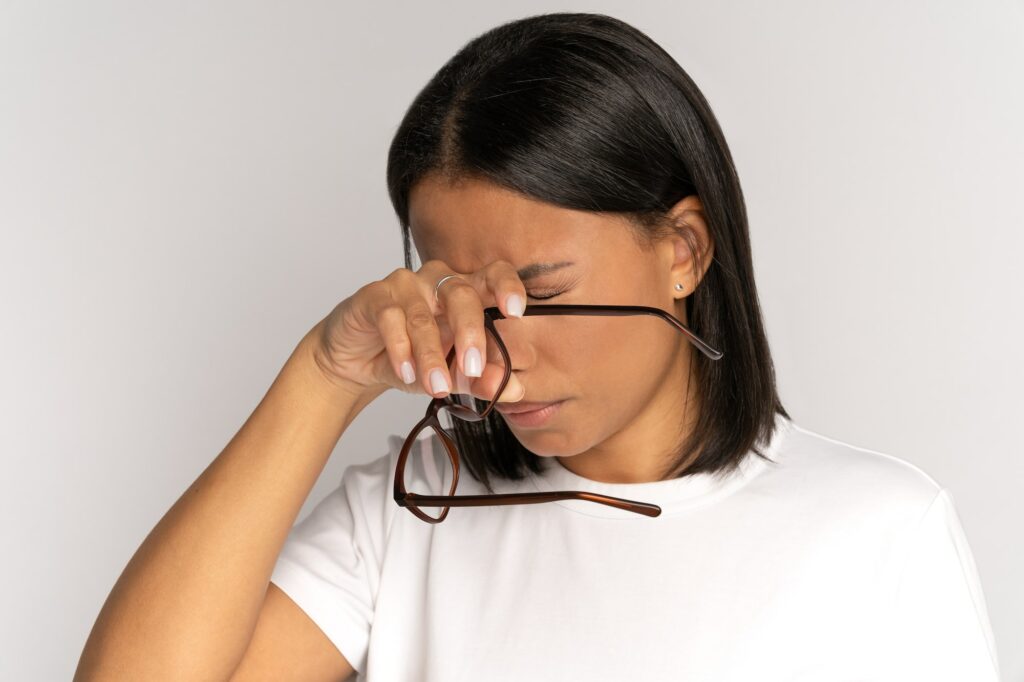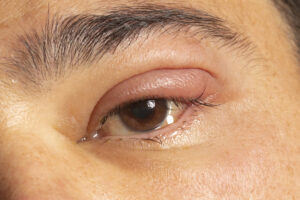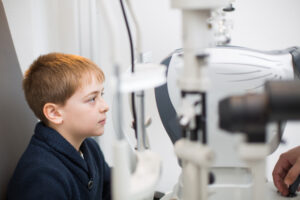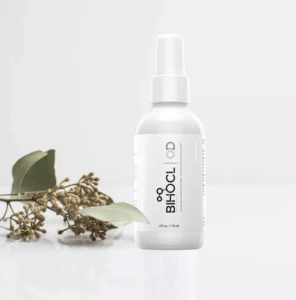If your eyes itch, burn, or feel gritty, you could have dry eye syndrome. In most cases, this results from inadequate tear production, or tears of poor quality. Several contributing factors need to be considered, such as medicines you are taking, the length of time that you stare at your phone or computer without blinking, being exposed to smoke or dry air, using contact lenses, or aging.
The good news is, there are many treatments for dry eye syndrome, including advanced treatments for severe cases. So relief is certainly possible! Here are some at-home treatments to try out first:
a. Hydration
To maintain good health, every body part, including your eyes, requires water. Drinking water helps keep the eyes moist, so don’t wait until you’re parched to take a drink!
Aim to drink eight to ten glasses of water during the day. If you don’t enjoy drinking plain water, you may substitute any other beverage that doesn’t include any alcohol or caffeine instead. You can also eat high-water foods such as cucumbers and melons.
b. Sleep
Your eyes will not produce tears if you don’t get enough rest. Those who already struggle with dry eyes are likely to experience much more discomfort without adequate sleep. An adult’s average amount of sleep is between seven and eight hours each night. The Department of Health and Human Services recommends the following for those who have problems falling or staying asleep:
- Adjust how you spend your days, such as starting your workouts earlier in the day.
- Make sure you have a relaxing place to sleep, ideally somewhere dark and quiet.
- Establish a schedule for your time in bed, and try to go to bed at the same time each night.
c. Stress
Stress can make your existing dry eye worse, which can also increase your anxiety. Since everyone suffers from stress, it may be an underappreciated cause of dry eye illness. It’s important not to ignore high stress levels, and to do what you can to reduce stress in your life.
People who suffer from dry eyes may find that each blink causes discomfort and annoyance, which on its own, is stressful enough! Therefore, proper treatment is vital, for example with a lubricating eyedrop.
d. Humidifier
It’s possible that your eyes are irritated because of how dry the air is. A humidifier is a device that provides moisture to the air and may help alleviate the symptoms of dry eyes. Other health problems that are connected to dryness may also be improved by using a humidifier.
- Dry skin
- Hacking cough
- Irritation of the nose
- A headache due to a dry throat
- Congestion in the sinuses
If you suffer from some of these additional symptoms of dryness, then properly using a humidifier may be a helpful solution.
e. Make-up
Remove your makeup before sleeping. It’s good practice to do so, but it is necessary for those who have problems with dry eyes. Going to sleep with makeup on, particularly eyeliner and mascara, can enable germs to build up, making your dry eye disease worse. Eyeliner and mascara are especially problematic in this regard.
f. Lid massages
Apply a little pressure with your thumbs to the region just above the inner corner of your eyes, where the crease of your lid starts. After applying a gentle amount of pressure, let go. Do this five times in succession. This helps to express the meibomian glands, which secrete oil that keeps your eyes moisturized.
g. Eyelid hygiene
Eyelid cleansing is essential for the prevention of potential problems that can arise as a result of buildup in the meibomian glands, eyelids, and the skin around the eyes.
It may not seem necessary to clean the region around your eyes, but if you don’t, dirt and debris can become trapped under your eyelids, which can lead to inflammation. It’s possible for your eyelid to get infected, puffy, and irritating. Of course, anything that increases eye irritation is going to make dry eye symptoms even worse.








